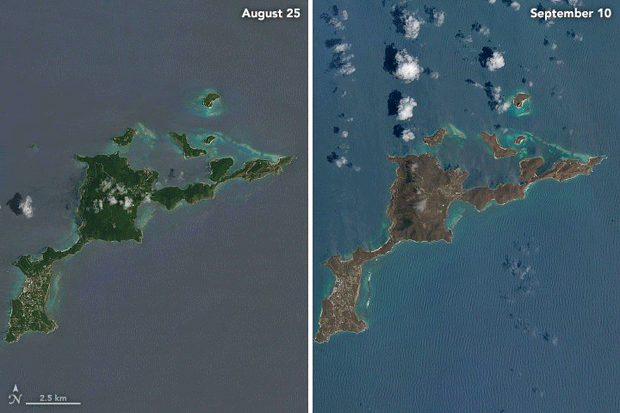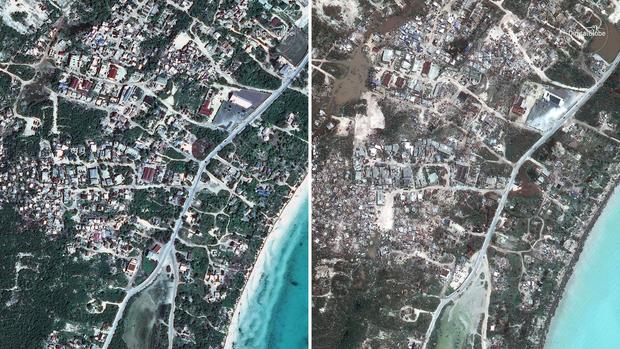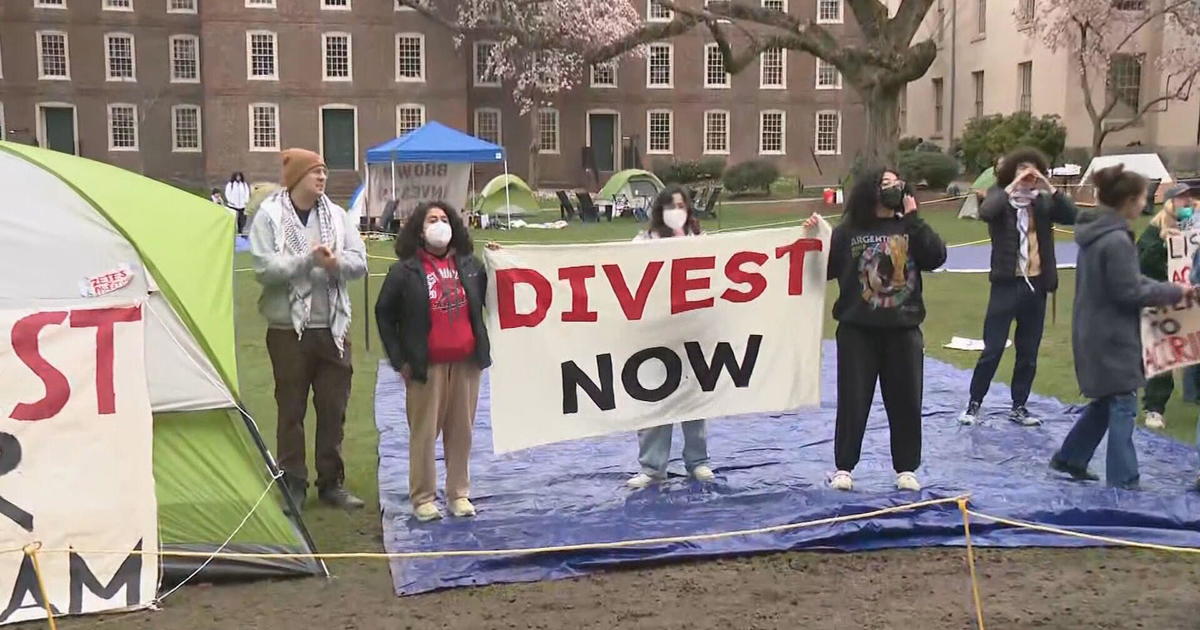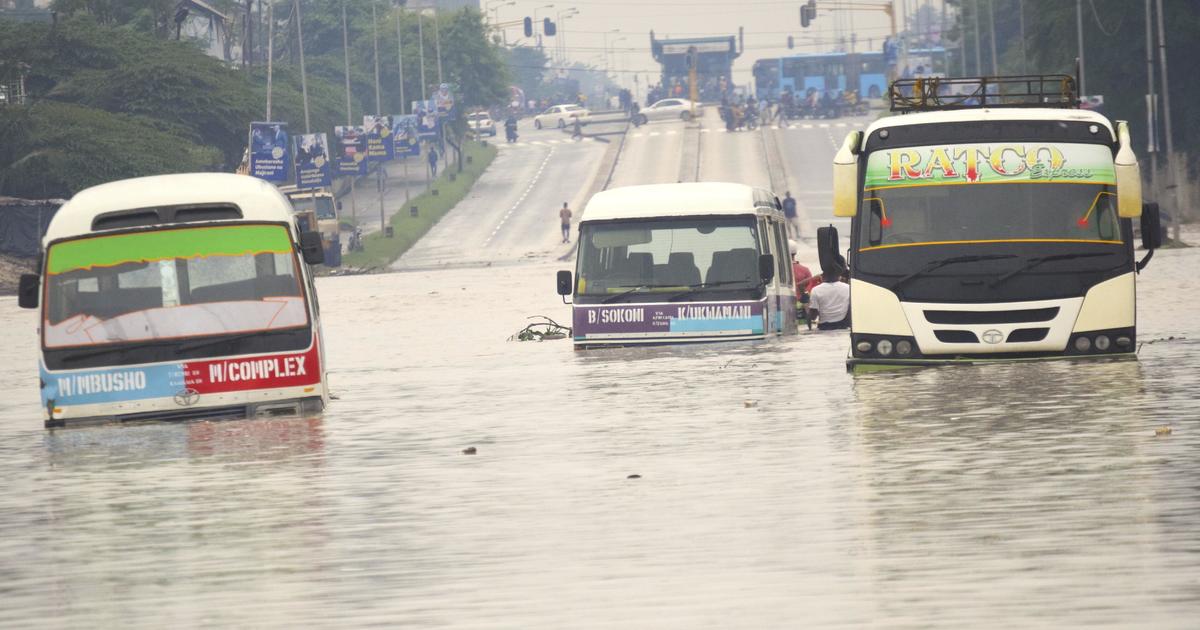The Caribbean's long hard road to normalcy after Irma
A cluster of islands in the northeastern Caribbean that appeared lush and green in satellite imagery before Hurricane Irma now are drab and brown -- and likely will stay that way for a while.
Conditions are grim in the tropical communities that endured the eyewall of Irma and its wind gusts of 185 mph, including St. Thomas, St. John, Tortola, Virgin Gorda and St. Martin. The historically powerful storm leveled most structures on the islands, knocked out power, stripped forests and tossed around seafaring vessels from dinghies to yachts like toys.
Crews still are evacuating people stranded on the islands and delivering food and water, and damage assessments have only just begun. But early estimates suggest the cost of rebuilding will reach into the billions of dollars, and a sense of normalcy could take years to return to islands whose economies are built almost entirely on tourism.
"These people are suffering tremendously," said Chris Hanley, a real estate broker who sells properties on St. Thomas and St. John and lives on nearby St. Croix, where he's hosting 11 evacuees in his home. "We're doing the best we can to help, but they need a lot more help, and they're going to need it for a long time."
The storm is likely to cost Caribbean economies including the U.S. and British Virgin Islands, Puerto Rico and Turks and Caicos more than $3 billion, predicts Joel Myers, founder and president of meteorological-services specialist AccuWeather. That's a devastating blow and only a fraction of the $100 billion in total damage Myers expects from the sprawling storm, much of it in Florida.
The massive recovery effort still ahead in the Caribbean -- from clearing islands of debris to restoring power and infrastructure to rebuilding hotels and government buildings -- will carry unique challenges because the islands are so isolated, Myers said. On the other hand, the warm climate allows for year-round construction once rebuilding commences.
In the meantime, islanders will struggle with limited shelter, poor sanitary conditions and scarce fresh food, thanks in part to limited electricity for refrigeration. "All these things compound to make a nasty situation that much worse," Myers said.
St. Croix, which suffered only minor damage from Irma, has become a staging ground for recovery operations for both U.S. and British officials. The island's residents, including Hanley, are pitching in with ferries delivering supplies and evacuating stranded residents. They can relate to what their neighbors are going through: In 1989, Hurricane Hugo leveled St. Croix but spared St. Thomas and St. John.
"If post-Hugo recovery effort has anything to do with what they're facing in St. Thomas and St. John, we were a good year without complete power," said Hanley, who owns Farchette & Hanley Real Estate. "Lots of people depart, so your economy basically collapses in that localized area. There's no one consuming anymore."
Many residents of the hardest-hit islands will move elsewhere, some permanently, Hanley said. Property owners and insurance adjusters will swarm the island to determine which properties are beyond repair. He guessed the losses will be in the billions given the "scale of devastation" to homes, boats and infrastructure.
Once evacuations are complete and humanitarian needs met, government and private contractors will begin a weeks-long effort to assess infrastructure including sewer, water and electricity, transportation and communication grids, and security, said Dale Buckner, CEO of Virginia-based Global Guardian, which handles disaster-recovery logistics for private companies including major hotel chains.
After that, construction crews and massive shipments of materials from wood to wiring to concrete will start arriving, said Buckner, who has a crew of 25 in the Caribbean that he expects to balloon to 75 in the coming weeks. They provide logistical support for hotels and reconstruction companies.
"Because it's the Caribbean, hotels are going to move the fastest," said Buckner, who noted the islands have no economy without tourists in hotels and cruise ships docked in their ports. "The hotels have the money. They're insured. Every day they're down, they're losing money."
The Caribbean as a whole rakes in about $52 billion from tourism annually, or almost 15 percent of its GDP, the highest proportion of any region in the world, according to the World Travel and Tourism Council.
Buckner expects the islands will return to some sense of "normalcy" -- at least from the vantage point of tourists -- within three months, though he noted key infrastructure could take six months or more to rebuild.
"If you live in St. Thomas, six months from now you're going to feel pretty normal," he said. "Roads will be cleared, electricity reestablished, restaurants, bars and ports functioning like nothing happened. But you'll still see remnants."
Some residents won't be able to rebuild. Homeowner's insurance is very pricey in the U.S. Virgin Islands: A 2,500-square-foot house pays between $8,000 to $10,000 per year in insurance, Hanley noted. Coverage is required if you have a mortgage, but plenty of homeowners race to pay off their mortgage so they don't have to spend so much on insurance premiums -- 70 percent of which covers the risk from wind storms.
It's also possible that Irma could bankrupt some companies involved in tourism, including those that were already struggling financially or without adequate insurance, Myers said. That could delay recovery for months and even years in some cases.
The islands eventually will prosper again, Hanley said, but for displaced residents it's too early to start thinking about rebuilding.
"They're still in shock right now," he said. "When they come off these boats and land on the shore, they grab you and hug you and cry and hold you and thank you profusely for getting them back to refrigeration, ice, a roof and a dry place to sleep."





